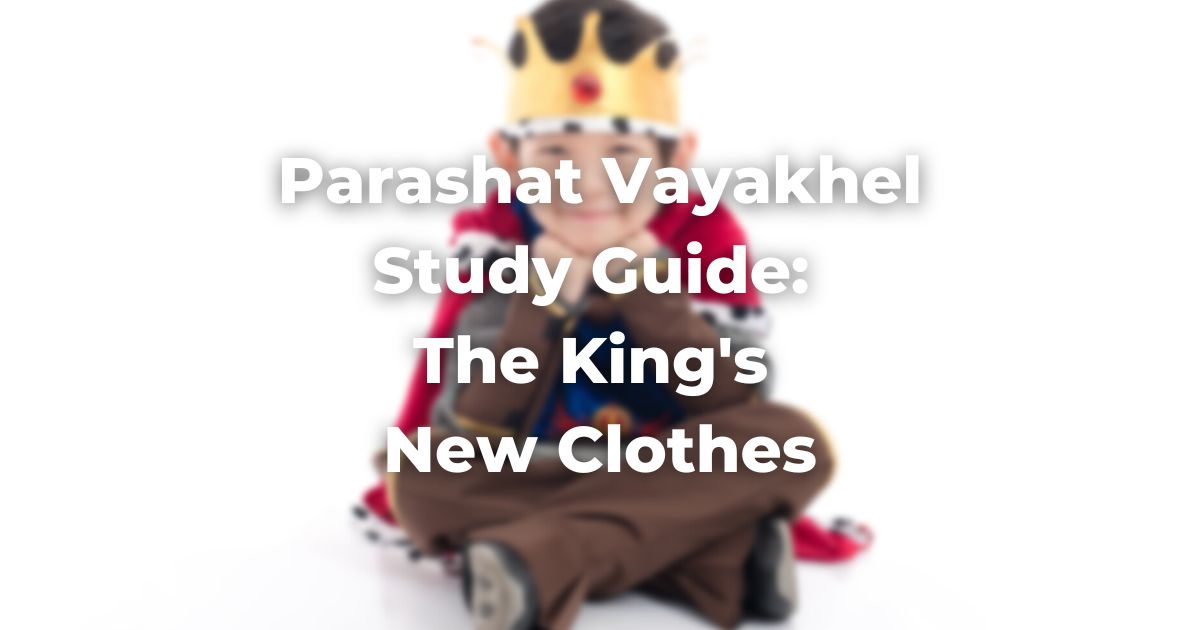“Seven years old was Jehoash when he became king.” So reads the first verse of our haftarah in 2 Kings 12.
What makes a King?
We start with the king’s age. At only seven years old, he is the youngest king in the TanakhAn acronym for the name of the Hebrew Bible: Torah, Neviim, and Ketuvim. Read more. He’s had a rough childhood. His father, the former, was killed while fleeing from a fight.
His grandmother killed all his relatives and tried to kill him in order to cement her rule after his father had died. He spends the first six years of his life in hiding from her.
Just before our story starts, his uncle, the priest, puts him in king’s clothing and stages a coup against his grandmother, who is killed in the process.
And now, at the ripe old age of seven, Jehoash becomes king.
He’s got help—Jehoiada, his uncle, the priest is behind him. We read, “And Jehoash did what was right in the eyes of God all his days, as Jehoiada the priest taught him (2 Kings 12:4).” Jehoash goes on to reign for forty years.
In the version of the story told in our haftarah, he does well because he is taught well. Despite his traumatic childhood and the murder of most of his family, Jehoash is still able to learn right from wrong and to use that knowledge to rule justly.
Two versions of the story
However, there is another version of this story that is told a little differently. Much of the Book of Kings is reproduced in Chronicles. Often the stories are retold exactly, word-for-word. However, sometimes there are small discrepancies, slightly altered versions of the stories to be found. That is the case for the story of Jehoash.
In 2 Chronicles 24 we read, “And Jehoash did what was right in the eyes of God, all the days of Jehoiada.” It’s a small change, but rather than doing good for all of his days, Jehoash does good for all of Jehoida’s days.
Here, Jehoash does not learn right from wrong, he does not grow from a seven-year-old into a responsible king. Rather, while someone responsible is dictating his actions, he is good, and once that person dies and he can make his own decisions, he makes the wrong ones.
These two versions of the story bring into relief the challenges of passing down traditions or values through forms.
Jehoiada dresses Jehoash in the king’s clothes. It is the fact that this clothing is worn that declares Jehoash as king. But the wearing of the clothing is not enough.
It is only through the individualized teaching that comes in the first version of the story that tradition is able to be passed down.
Likewise, we read of the building of forms in this week’s parasha, as the mishkan is constructed.
As the story of the mishkan continues to unfold in the next weeks, we will continue to see the danger of trusting forms to hold meaning, to be capable of passing down tradition, without adding teaching to the form.
See more: Parashat Vayakhel
Originally posted as part of the Conservative Yeshiva at the Fuchsberg Jerusalem Center’s Torah Sparks. Support TorahRefers to the first five books of the Hebrew Bible, the Tanakh, also called the Five Books of Moses, Pentateuch or the Hebrew equivalent, Humash. This is also called the Written Torah. The term may also refer to teachings that expound on Jewish tradition. Read more learning from the Fuchsberg Jerusalem Center/Conservative Yeshiva for leaders and seekers around the world here.
Authors
-

Bex Stern Rosenblatt is the Conservative Yeshiva’s Faculty-in-Residence for the Mid-Atlantic Region of the United States, teaching Tanach, using the techniques of close-reading, theater, feminist readings, and traditional commentators. Bex also directs the CY’s recruitment efforts in North America. After finishing her B.A. in History and German at Williams College, Bex received a Fulbright Grant to Austria. She later earned an M.A. in Tanakh from Bar Ilan University and has also studied at the Conservative Yeshiva and Bina Jerusalem. Bex is the founder of HavrutaA study partner. A hevruta is more than just a ‘study buddy’ it is a serious and personal relationship between colleagues. Also spelled: Havruta Read more Tel Aviv, an organization that facilitates guided pair-learning of the Tanakh.
View all posts -



The Fuchsberg Jerusalem Center (FJC) is a home in the heart of Jerusalem where leaders and seekers can find an authentic place in Jewish tradition to call their own. FJC offers opportunities to study, pray and explore within an egalitarian and inclusive setting, creating multiple pathways for finding personal and communal meaning.
View all posts






